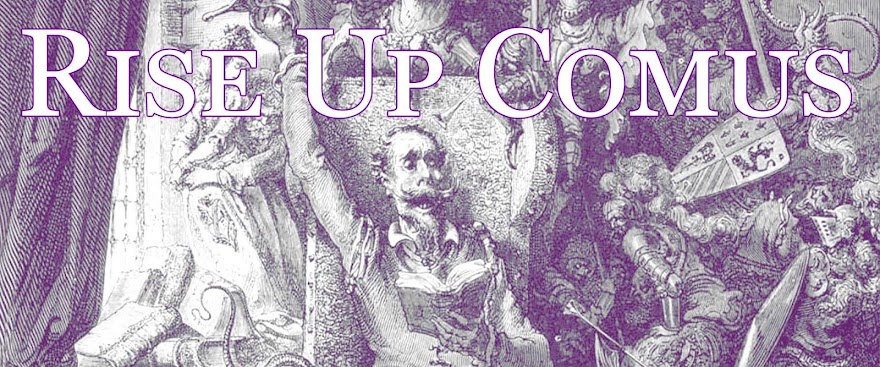ANOTHER thing I like is having cleric types (and all spell-users, for that matter) feel notably different from each other. I wish that, as a cleric of dwarven ancestors, all of my powers revolved around dwarf shit like falling rocks and opening tunnels and reforging swords, but half the time I feel pretty compelled by the mechanical efficiency of moon beam and wall of fire or whatever. There's nobody saying I can't take those spells (prayers?), and though I try my hardest to stick to a theme I'm encouraged mechanically to use the tools at my disposal.
I had an idea this morning while I was waking up and my cat was mercilessly and relentlessly clawing me, so bear with me, this might be shit. I'm finding out as I type it.
When a cleric and a GM talk about what deity the cleric will worship, they come up with a list of canonical spells. These are the miracles that it is known that the god grants. In D&D, this might be a cleric's Domain Spells. Or maybe this list only consists of one or two spells--the GM might choose one and the player might choose one. These are spells that the cleric always has access to because it's inherently the god's shtick.
The cleric then populates a list of dX other spells, probably a d6 or a d8. These are the secret revelations.
Each god has a one or two word theme. They also have three sub-themes.
So Thor's theme is Thunder and lightning. He also has a theme of Wrestlin', Hammerin', and Drinkin'.
Odin's theme is Wisdom. He also has a theme of Undeath, Poetry, and Frenzy.
When a cleric is in a bind and one of the canonical spells isn't appropriate, he may pray to his deity. His deity, hearing the prayer of her faithful, stretches down her divine will and manifests aid through a secret revelation.
The cleric rolls on the revelation table. If he accepts the rolled spell, he swaps out any one word in the spell's title with any of the god's themes or sub-themes. He can instead call on either of the adjacent spells on the table (one above or one below), but in that case he can only rename the spell with the god's main theme.
So, for instance, a Wall of Force on the spell list might become a Wall of Lightning, if cast by a cleric of Thor. It might become a Wall of Undeath if cast by a cleric of Odin. Similarly, a Summon Monster might be a Summon Hammer if cast by Thor, or a Summon Frenzy if cast by Odin.
The effects of a thematically changed spell ultimately lie with the GM, but they can be modeled after the spell in question. If Wall of Fire does 5d6 damage when you pass through it, Wall of Lightning probably does too, just change the damage type. But "Wall of Undeath" might be meaningfully different. Maybe it gives you a disease? Maybe it grapples you? The GM will have to adjudicate this on the fly, using the core spell as a baseline.
Here's an example spell list for the Goddess of Rats:
 |
| I imagine the goddess of rats looks like Yolandi |
Theme: Rats
Sub-Themes: Secrets, Disease, Sewers
Canonical Spells: Speak With Animals (Rats Especially), Spider Climb
Secret Revelations (d8)
1 - Animal Friendship (Rat Friendship, Disease Friendship, Animal Disease, Animal Secrets)
2 - Cure Disease (Cure Rats, Cure Secrets, Secret Disease, Sewer Disease)
3 - Animal Growth (Rat Growth, Animal Disease, Sewer Growth)
4 - Hold Animal (Hold Sewers? Hold Secrets? IDK)
5 - Rope Trick (Rat Trick, Sewer Trick, Secret Trick)
6 - Stinking Cloud (Rat Cloud, Stinking Secret, Disease Cloud)
7 - Dispel Magic (Dispel Secret, Dispel Disease, Dispel Sewer)
8 - Find Familiar (Find Rat, Find Secret, Find Sewer, Rat Familiar, Sewer Familiar)
Practically speaking, I have no idea if this would really work in play, but it sounds like it could be...fun...somehow?
